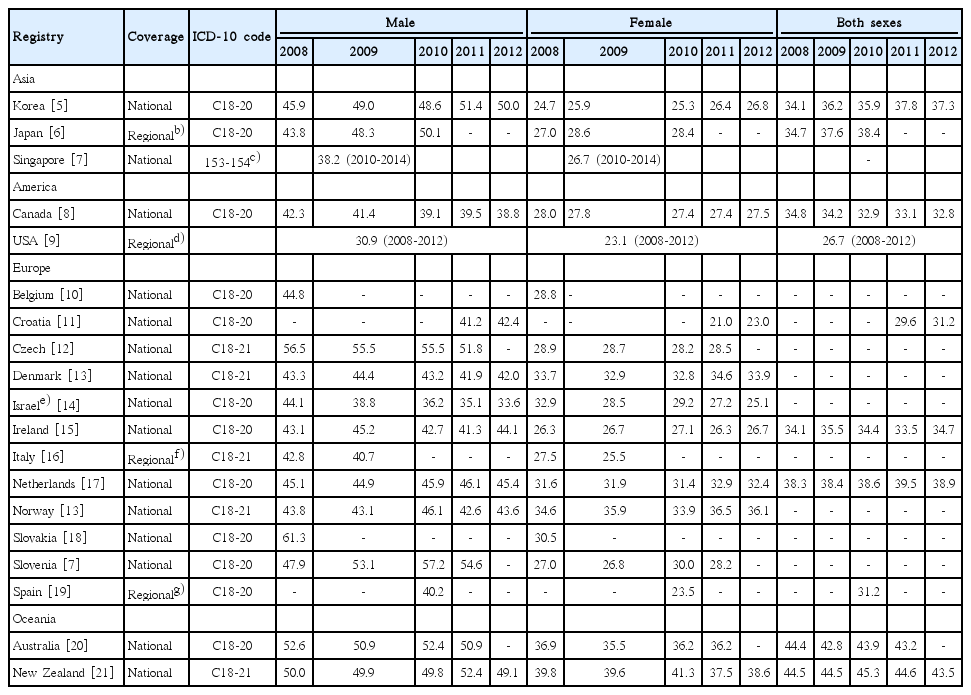Colorectal Cancer Incidence in Korea Is Not the Highest in the World
Article information
Recently, media as well as academic societies have referred to GLOBOCAN 2012 to support the high incidence rate of colorectal cancer in Korea. According to GLOBOCAN 2012, colorectal cancer incidence ranked third for men and fifth for women, and the highest when both sexes were combined among 184 countries (Table 1) [1]. Because GLOBOCAN intended to provide the most recent estimates of cancer incidence, mortality, and prevalence for 28 cancers worldwide, the quality of country estimates varied from high quality national or regional data to no data [1]. Therefore, the accuracy of estimates are dependent on the availability and the accuracy of the data from each country [1]. Korean data is high quality national data with rates projected to 2012. The most recent incidence data used for GLOBOCAN estimates was for the year 2009 [2]. Indeed, the age-standardized incidence of colorectal cancer increased by 5.3% annually between 1999 and 2012 [3]. However, according to the Korea Central Cancer Registry data, the colorectal cancer incidence decreased for men and stabilized for women in 2012 [3]. Since projection used for GLOBOCAN 2012 applied trends until 2009, which was an annual percent change of 6.2% for both sexes [4], the GLOBOCAN estimates overestimated the incidence for the Korean population.
We retrieved published incidence data of selected countries from 2008 to 2012 (or nearest year to 2012) (Table 2). In comparison of age-standardized incidence rates, Czech (2011), Slovakia (2008), and Slovenia (2011) showed higher incidence than Korea (2011 or 2012) in men. In women, most countries with recent data showed higher incidence compared to Korea. When both sexes were combined, incidence of Japan (2010), Netherlands (2012), Australia (2012), and New Zealand (2012) was higher than that of Korea.
In conclusion, the aim of GLOBOCAN 2012 is to provide worldwide estimates for cancer burden, and there are substantial differences between GLOBOCAN estimates and observed statistics due to methodology applied. Korea has experienced rapid transition in colorectal cancer epidemiology, therefore predicted estimates using past trends may not appropriately reflect the observed statistics. Although GLOBOCAN is useful for overviewing cancer burden, caution should be used in direct comparison or referring of the estimated incidence or mortality.
Notes
Conflict of interest relevant to this article was not reported.

